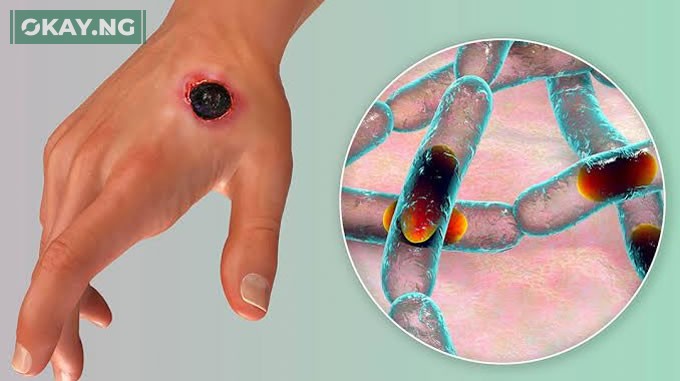The Federal Ministry of Agriculture and Rural Development (FMARD) has confirmed the first case of anthrax in the country.
The case was reported on a multi-specie animal farm in Suleja, Niger State, where several animals displayed symptoms of the infectious disease.
The ministry is taking immediate action to contain and address the situation.
According to a statement issued by the Chief Veterinary Officer of Nigeria, Dr. Columba Vakuru, the animals on the farm, which included cattle, sheep, and goats, exhibited symptoms such as oozing of blood from their body openings, including the anus, nose, eyes, and ears.
The Office of the Chief Veterinary Officer of Nigeria received the report on July 14, 2023, and a rapid response team was deployed to conduct preliminary investigations and collect samples from the affected animals.
Subsequent laboratory tests at the National Veterinary Research Institute confirmed the diagnosis, marking the first recorded case of anthrax in Nigeria in recent years.
The FMARD had previously alerted the public about the outbreak of anthrax in the West African sub-region, particularly in Northern Ghana bordering Burkina Faso and Togo.
Anthrax is an infectious zoonotic disease caused by the bacterium Bacillus anthracis. While the disease primarily affects animals, humans can contract it through contact with infected animals or contaminated animal products, such as meat, wool, or skins.
The bacteria live in the soil and can infect both wild and domestic animals, including goats, cattle, and sheep.
The FMARD emphasized that anthrax is not contagious between humans but can be transmitted through inhalation of spores or consumption of contaminated animal products.
Symptoms of anthrax in humans are similar to flu-like symptoms, including cough, fever, and muscle aches. If not diagnosed and treated early, the disease can progress to severe lung problems, difficulty in breathing, shock, and death.
Prompt treatment with antibiotics and supportive therapy is crucial for managing anthrax.
The ministry advises individuals to seek medical attention if they experience symptoms after contact with infected animals or contaminated animal products.
In response to the confirmed case, the FMARD has implemented measures to prevent further spread. Infected dead animals are being buried deep into the soil, along with equipment used in the burial, after applying chemicals that kill anthrax spores.
The ministry also advises the general public to refrain from consuming hides (ponmo), smoked meat, and bush meat, as they pose a significant risk until the situation is brought under control.












